The Formula For Resilience: how education and mentoring help people grow during wartime — discussion highlights
Publication date: October 20, 2025
Author: Yulia Bilyk, Communications Manager, Legal Development Network
Participants in the public online discussion “The Formula for Sustainability: How Training and Mentoring Help Organizations Grow During Wartime” discussed why it is important for civil society organizations to learn, adopt best practices, and seek mentors, and how all of this together ensures their development. The event was organized by the Legal Development Network as part of the initiative “Strengthening the Capacity of Legal Clinics to Provide Access to Legal Services in Communities in Ukraine,” which is being implemented with the assistance of the United Nations Development Program (UNDP) in Ukraine and with the financial support of the Government of Denmark. Read the main points made by the speakers at the event.
New challenges — new approaches to learning
After the full-scale invasion, the Legal Development Network (LDN) worked closely with local organizations. This experience revealed that the new social reality, the displacement of people, and new demands in communities triggered the emergence of new human rights initiatives and the growth of existing ones. Some civil society organizations changed the focus of their activities. Other actors in the field of access to justice, such as legal clinics operating at higher education institutions, also underwent changes.
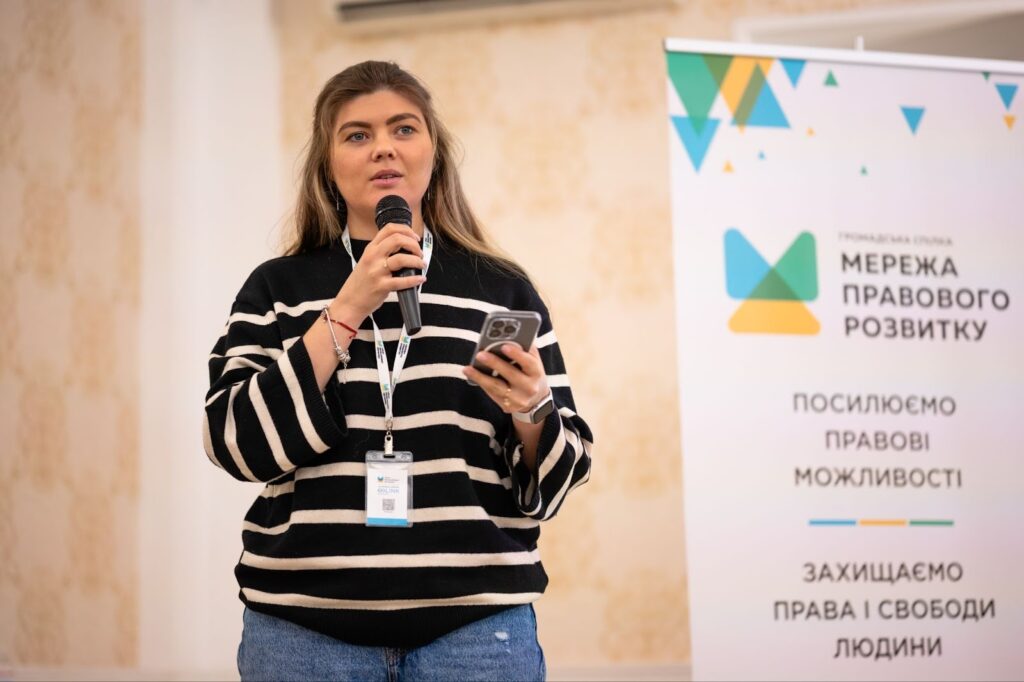
“In 2025, we had the opportunity to work with teams from legal clinics and civil society organizations that were established on the basis of legal clinics or cooperate with them to explore how we provide legal aid, exchange experiences, and create a network of legal aid providers that will be able to exchange ideas, develop new practices, and implement joint projects in the future,” says Iryna Chaika, Director of Organizational Development at the MPR.
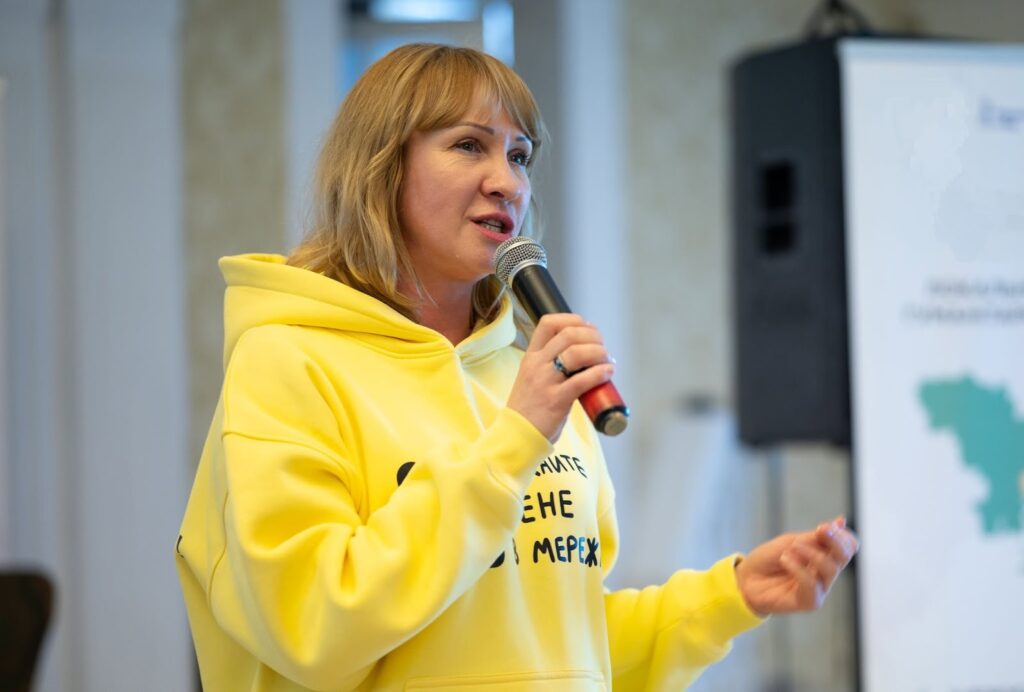
Olga Nastina, Executive Director of the Legal Development Network, emphasizes the importance of exploring new forms of work in the context of full-scale war:
“We have selected interesting training formats for legal clinics and civil society organizations operating on the basis of clinics. In the training program, we managed to thoroughly cover legal education, its tools, methods of conducting sociological research, and approaches to providing legal aid, which we can develop directly in the field. And I am very proud that we were able to involve the best representatives of the human rights movement in Ukraine in mentoring this project.”
Regina Chulinina, a small grants specialist with the UNDP Peacebuilding and Recovery Program in Ukraine, emphasizes the critical importance of professional support.
“The conditions of war create new challenges and new areas of work. We see a great need for qualified legal assistance in various communities. Training that is based on practice and adapted to today’s realities, mentoring that allows for the transfer of experience and helps young professionals—it’s not just about tools, it’s also about resilience, which helps organizations not only to work, but sometimes to survive.”
From theory to practice: the experience of mentoring in human rights work
Khristina Zakharova, coordinator of the legal service at the Right to Protection Charitable Foundation, talks about the experience of implementing a mentoring system in various areas of the organization’s activities.
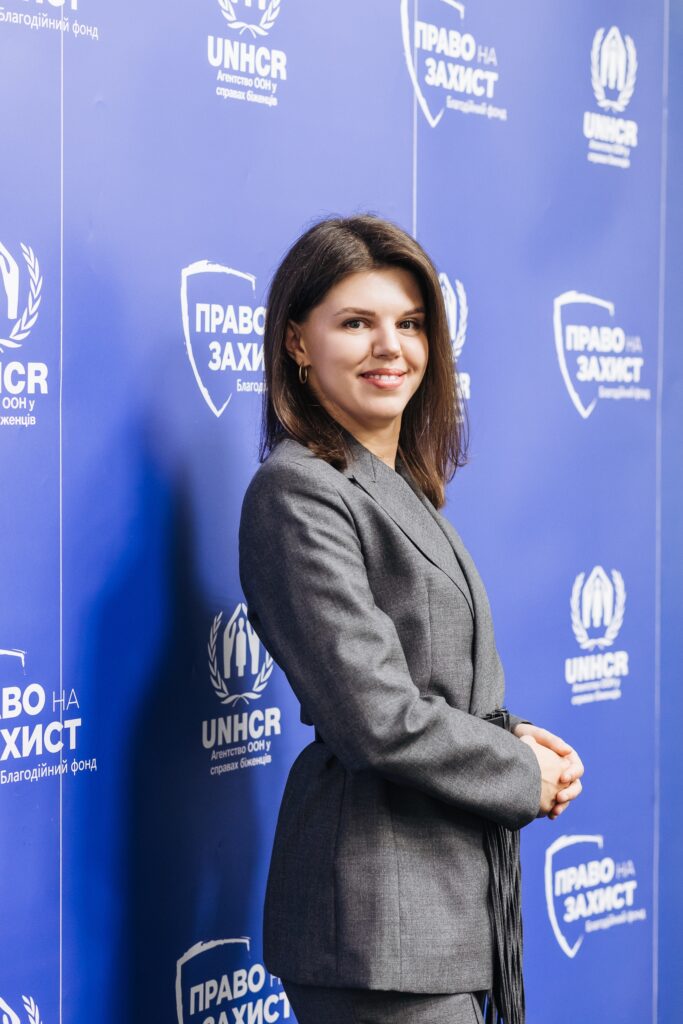
“Teachers in schools and universities help us gain knowledge, but when we talk about real practical experience, mentoring comes into play. It is mentoring that helps transfer professionalism and competence, linking the knowledge we have with the real environment in which we will continue to work.”
Khristina shares the specifics of working with specialists/officials who are just starting their professional careers.
“When we hire a new lawyer, we understand that he or she is a good specialist/official who knows the law. But usually, people rarely have experience working with the category of people we work with and in the conditions—crisis-prone, responsive—in which we work. It is in this aspect that mentoring within our organization comes to the rescue.”
The Right to Protection Foundation faced a separate challenge when working with paralegals.
“This year, we piloted a broad system of paralegals—currently, 66 specialists are working in 18 regions of Ukraine. This was a challenge because it was almost the first time we had worked with non-lawyers on a professional, permanent basis. We need to teach them basic legal knowledge and, at the same time, develop a powerful, in-depth support system.”
Khristina also emphasizes the importance of working with young professionals and students who are curious and eager to gain professional experience.
Education and research: the synergy of theory and practice
The specialized legal clinic at Sumy State University is participating in a project to strengthen the capacity of legal clinics. Along with the educational and mentoring aspects of the project, the clinic became one of three that delved into sociological research on the legal needs of their clients.
Lyudmila Rudenko, head of this legal clinic, shares her experience of introducing new components into the organization’s work.
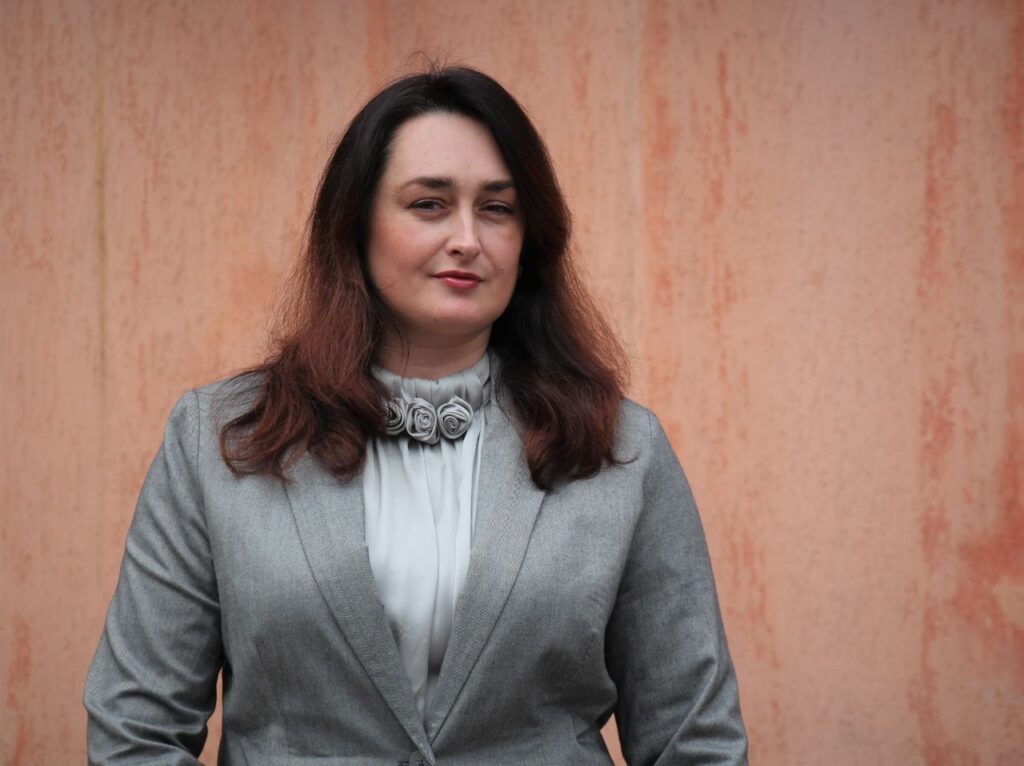
“Two components of our legal clinic’s development concept were new to us. The first was the selection and support of strategic cases in the field of compensation and reparations for property damaged or destroyed as a result of the war, and the second was sociological research. The most valuable aspect of the project was that we were taught how to properly conduct a sociological survey: how to form a sample, compile a questionnaire, and conduct interviews. We could not have covered this on our own within the scope of our current activities.”
According to Lyudmila Rudenko, field research has practical value because it allows us to see people’s real needs.
“You can write as many algorithms and instructions for action as you like on the legal clinic’s website, but when disaster strikes, people still get lost. Therefore, we must start from people’s needs, understand their psychology, and how they can best receive information. Field research will help us to organize our work effectively and communicate with people in a meaningful way,” notes Lyudmila Rudenko.
Adapting mentoring approaches in wartime
Natalka Kostyshyn, chair of the board of the Youth Initiative Center NGO and mentor, shared her own perception of mentoring as a two-way process. After all, by mentoring others, mentors gain a lot of new insights for themselves.
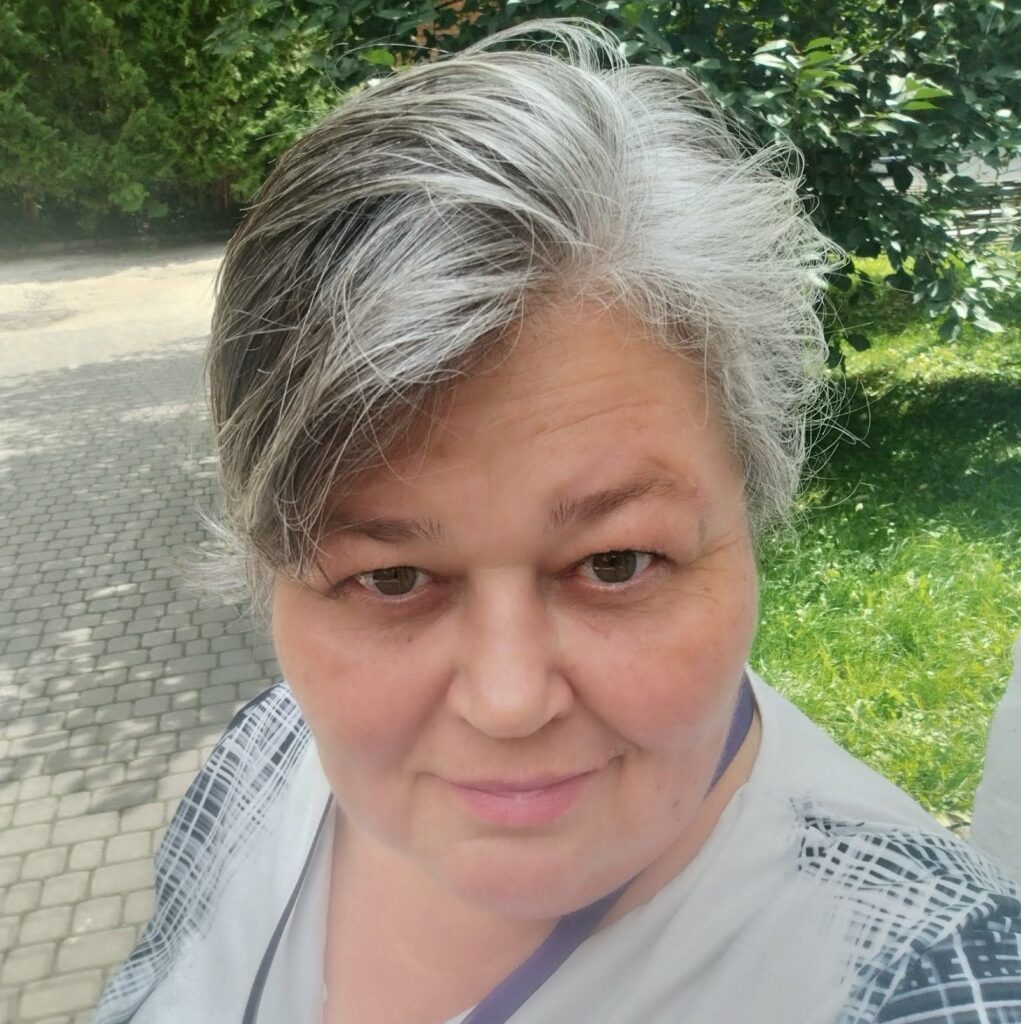
“For me, mentoring is a process that gives me the opportunity to work with teams and work on myself much more than before. The ability to clearly feel at what stage you are a mentor and at what stage you are learning yourself has become my achievement,” says Natalka Kostyshyn.
The mentor notes qualitative changes in her work with the legal clinic teams she supports.
“There has been a change and a rethinking of generations. We work with teams that are not afraid to experiment because they don’t know how it should be. They know how it can be. And that’s a plus. This component makes it possible to experiment together with them,” notes Natalka Kostyshyn.
Regarding the organization of the training process, Natalka emphasizes the importance of a flexible approach.
“When drawing up plans for mentoring support, we agreed with the teams that we would take their needs into account. Based on their requests and needs, the Network formed the topics for the webinars and selected specialists to implement the educational component. This took a lot of the burden off me as a mentor, because individual topics and blocks were covered faster, easier, and with greater benefit for both sides,” emphasizes Natalka Kostyshyn.
One of the biggest challenges for teams, according to the mentor, is organizing work remotely when team members are located in different regions and sometimes even countries.
“The challenge is to support the team and keep them on track, in the same vein in which they worked before and in which they will try to continue working.”
An individual approach to mentee teams
Human rights activist and mentor Maria Tsypiachchuk shared her experience of mentoring different types of teams.

“One team consists of female students who have just entered their third year of study. They have a wealth of life experience related to the war, as they themselves come from the Kherson region and already provide comprehensive legal assistance to internally displaced persons and war victims. This team has decided to establish its own non-governmental organization. On the other hand, I work with a team that includes representatives of two institutions, both of which are over 20 years old, both from the Luhansk region, and both displaced several times. They had some overlap in their work before participating in the project, but they did not interact closely. Therefore, during the first few meetings, they sought and eventually found common ground,” says Maria Tsypyashchuk.
The mentor emphasizes the importance of networking and cooperation between organizations with similar experiences in order to achieve successful results in their work.
Resilience through support
The motivation and desire of legal clinics and their partner civil society organizations to reach a new level of development is evidenced by their attitude towards participating in project activities.
“For me as a mentor, the experience of mentoring legal clinics is valuable because I have the opportunity to work with them, and I am infinitely grateful for their trust. The fact that the clinic teams are often in dangerous conditions during our meetings, but still come together and find time for this, is really very valuable,” emphasizes Maria Tsypiachuk.
Natalka Kostyshyn says that during meetings with mentee teams, she always keeps the air raid alert map open so she can understand the conditions the participants are in. The mentor recalls a recent incident.
“During an online meeting, I saw that two members of the legal clinic team turned off their video and lost connection. At first, I didn’t understand what was happening because there was no air raid alert on the map. Then the participants said that they would continue without video because there were drones flying overhead and they had moved into the hallway. This says a lot about people’s motivation and dedication to their work,” emphasizes Natalka Kostyshyn.
Conclusions
Summing up the discussion, Iryna Chaika emphasized the connection between learning and mentoring as integral parts of the organizational growth process.
“It’s one thing to listen to something and try it out in an experimental format during training. Because training, no matter what, is an artificial environment, an imaginary horizon that participants are striving toward. It is quite another thing to put theoretical knowledge into practice under the guidance of a professional, in our case a mentor. This results in a unique experience for each and every learner, who adapts the knowledge they have acquired to the specific conditions in which they have to work,” says Iryna Chaika.
The material was created with the support of the United Nations Development Programme (UNDP) in Ukraine and with the financial support of the Government of Denmark. The content of this publication is the sole responsibility of the Legal Development Network public association.
|
Отримайте поглиблену консультацію через чатбот LawLink
|
P. S. In June 2024, the Legal Development Network (LDN) launched a crowdfunding campaign, Recovery of The South of Ukraine , as part of the crisis response program #StandWithUkraine.
You can Recovery of The South of Ukraine |
If you have notices an error on the web-site, please, highlight the text and press ctrl-enter.
Have you found your solution? Help others!
Print a poster
Print and place the Network's poster on a notice board in your entrance hall
Become a volunteer
Become a volunteer and assist others in finding problem solutions
Do you need a consultation ?
Online chat
Ask question and one of the LDN's lawyers
will answer it.
Chat's schedule: from 10 to 16
every day
Chatbot
Ask questions via LawLink Bot in any convenient way. LawLink Bot is a smart and digital legal assistant created by the Legal Development Network.

Our initiatives
The Legal Development Network implements comprehensive projects aimed at strengthening human rights, developing capable communities, and building sustainable tools for access to legal aid. We work at the intersection of advocacy, legal education, and local coordination of humanitarian response.
